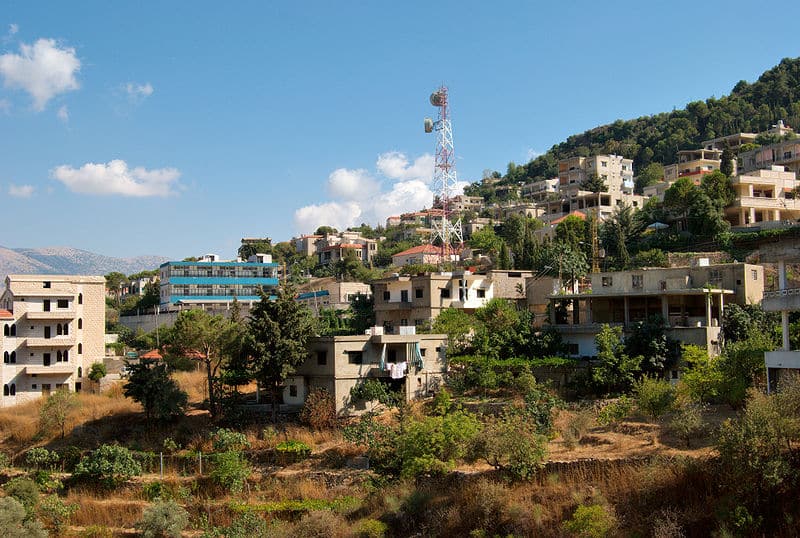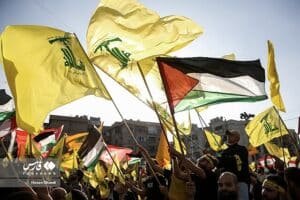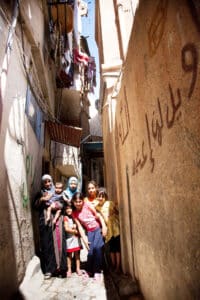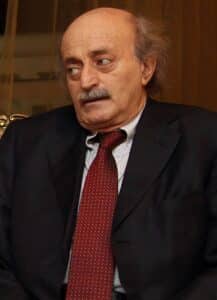On June 30th, violence broke out, as Minister of Refugees Saleh al-Gharib and Minister of Foreign Affairs Gebran Bassil planned on meeting in Kfar Matta. Supporters of Walid Jumblatt, Lebanon’s main Druze leader, blocked the road to protest against Gebran Bassil’s announced visit to the Chouf Mountains area. Bassil’s convoy turned around, but when Gharib and his aides tried to pass Qbar Shmoun, a fatal shooting broke out between supporters of Jumblatt’s Progressive Socialist Party (PSP) and Gharib’s bodyguards. According to the former, the bodyguards forced their way through and opened fire on the protestors, forcing them to fight back. A PSP supporter has reportedly been wounded, whereas two of Gharib’s aides were killed in the shooting. The Lebanese Democratic Party (LDP) and Gharib claim that the incident was an ambush and assassination attempt, while the PSP denies any involvement.
As a result of the violent confrontation, Prime Minister Saad al-Hariri decided to postpone a cabinet meeting for two days and attempted to appease the conflicting parties. In a statement, the PM said that he “decided to postpone the session and let the judiciary do its work.” The cabinet has been on deadlock ever since the June 30 shooting, and tensions between Lebanon’s political parties are growing. According to Hariri, several suspects were arrested. However, President Aoun and the Prime Minister are disagreeing on whether to refer the case to the Judicial Council or to the normal Judiciary.
The violent clash is seen as a result of LDP leader Talal Arslan’s historic quarrel with Jumblatt, two leaders of rivaling Druze parties. Their dispute intensified in May 2018, when Gharib was nominated and appointed as minister instead of a minister representing the PSP. However, there are many more dynamics involved due to Lebanon ‘s fractioned political landscape. These tensions grew when Bassil and Gharib announced to meet a senior druze religious figure, backed by Arslan, in the PSP-dominated town of Khar Matti. Jumblatt perceived this meeting with an affiliate of the rival Druze party as a deliberate crossing of the “red line”, and he vehemently opposes interference in Druze affairs. Bassil is the head of the Free Patriotic Movement (FPM), which is in dispute with the Progressive Socialist Party.
Bassil can be seen as a significant agitator in Lebanese politics. He is the son-in-law of President Michel Aoun and is hoping to take over the presidency at the end of Aoun’s term. In order to gain support for his not-yet-official campaign, Bassil uses populist methods and rhetoric and caused anger by using insensitive language regarding the historically tense Druze-Christian relations. In addition to provoking Jumblatt with the planned meeting in Kfar Matti, Bassil and PM Hariri pushed Jumblatt out of the state patronage networks, which the latter interprets as an attempt to undermine his politics.
It is unlikely that Jumblatt desired the armed confrontation with Arslan’s followers, as it only weakens his strong position in the Aley region. However, some read it as a two-fold message: on the one hand as a warning to Bassil not to provoke Jumblatt in his own region, and on the other hand as a demonstration to Arslan that he is still dominant among the Druze.
Sourcers: Reuters / Al Jazeera / Daily Star / The National / Al-Awsat 1 / Al-Awsat 2 / Naharnet 1 / Naharnet 2 / Naharnet 3
Image: Mazraat el Chouf



